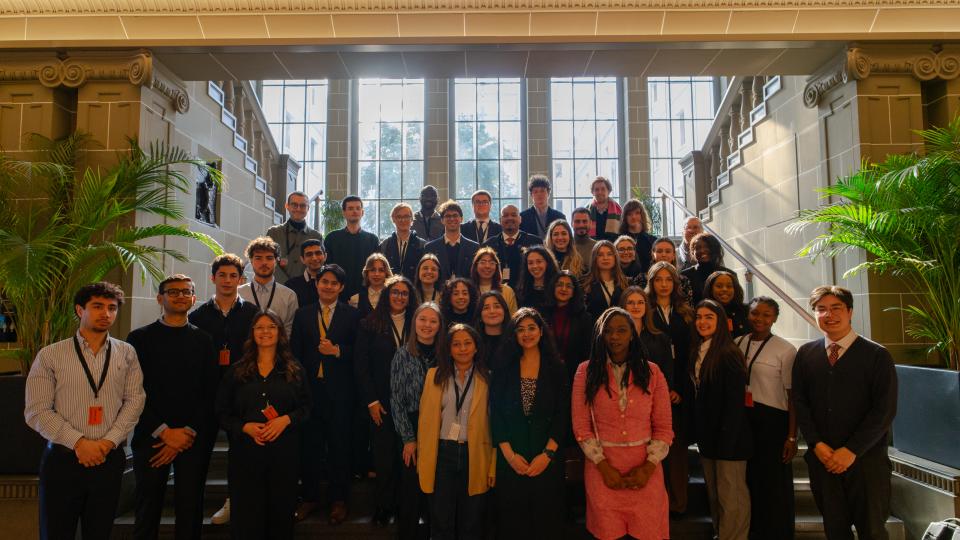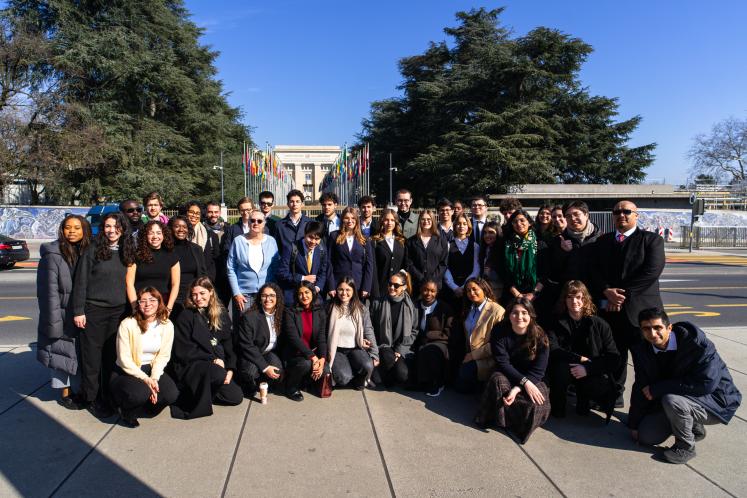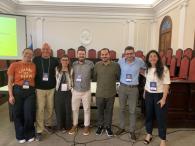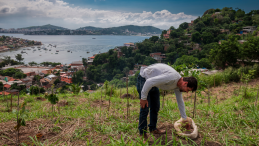In March, students from the Governance of Innovation specialisation had the opportunity to travel to Geneva as part of their academic journey in Public Policy and Human Development at UNU-MERIT. The visit immersed us in the heart of global diplomacy, innovation, and governance through direct engagement with several international organisations headquartered in the city.
While the trip focused primarily on the global landscape of intellectual property (IP) and innovation policy, it also opened space to explore the intersections between these areas and trade, development, and diplomacy. From in-depth sessions at the World Intellectual Property Organization (WIPO) to policy discussions at the World Trade Organization (WTO), the experience far exceeded our expectations.
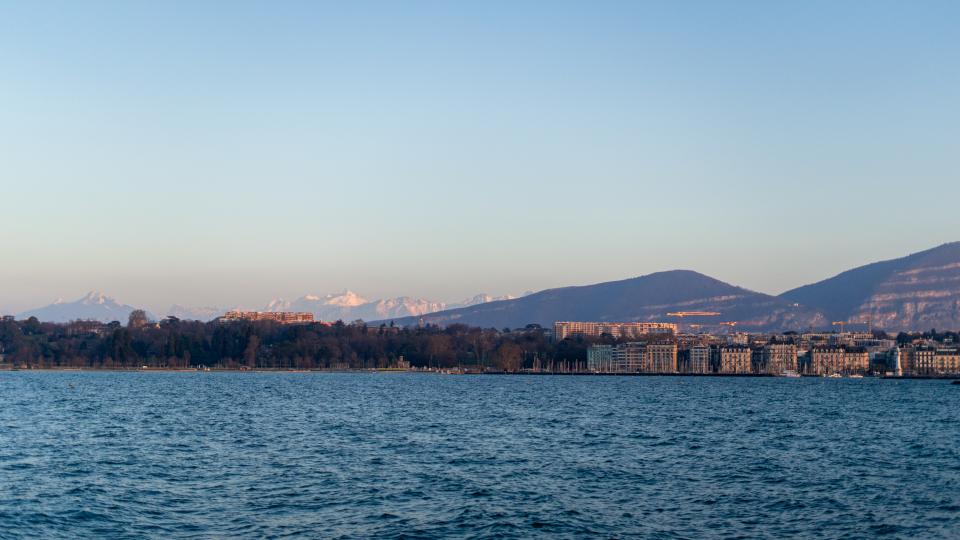
Inside WIPO and Beyond: Innovation in Practice
This year marked the first formal collaboration between UNU-MERIT’s innovation specialisation and WIPO, which hosted a two-day training organised by Sai Mandlik. Across a series of expert-led sessions, we gained candid, hands-on insights into WIPO’s work and the global IP system.
On the first day, we explored topics such as IP economics, the structure of IP systems, and the methodology behind the Global Innovation Index—which we had the rare opportunity to discuss with its authors. We also learned about WIPO’s new Treaty on Intellectual Property, Genetic Resources, and Associated Traditional Knowledge, reflecting efforts to make innovation more inclusive.
Day two featured sessions on emerging technology trends in transportation, WIPO’s legal functions, and their WIPO GREEN platform—an open-access database connecting innovators in the sustainability space. The initiative reflected the potential of open innovation and underscored the importance of knowledge-sharing in advancing global sustainability goals.
These sessions offered an honest look at both the promise and the limitations of current IP systems. Our cohort brought diverse interests to the table, and while not every topic resonated equally with everyone, the collective takeaway was rich and thought-provoking.
Our journey also provided a glimpse into the world of multilateral diplomacy. A visit to the Permanent Mission of India to the UN allowed us to engage directly with diplomats, offering valuable insights into the complexities of global policy-making.. As Liv Grafe, one of our colleagues, reflected:
“It made me think deeply about why I’m drawn to diplomacy. Learning about the philosophy of Ikigai at the Palais des Nations reminded me how personal and professional motivations are often intertwined.”
At the United Nations Conference on Trade and Development (UNCTAD), Dr. Clovis Freire, a UNU-MERIT alumnus, challenged us to rethink development strategies, emphasising that innovation must be context-specific to truly foster inclusive growth. Our discussions at the WTO further highlighted the role of international trade governance in shaping the global economy, offering key insights into how economic priorities are negotiated at the international level.

Expert Insights and Networking: A Bridge to Future Careers
One of the most rewarding aspects of this experience was the opportunity to connect with experts and UNU-MERIT alumni working at different international organisations. These interactions brought theory into practice, illustrating how policy research and academic insights translate into tangible solutions in the field. By engaging with professionals at WIPO, UNCTAD, and other organisations, we gained firsthand knowledge of how innovation, trade, and diplomacy converge in the world of international governance.
Bridging Theory with Practice
The visit underscored the importance of blending theoretical knowledge with practical engagement. While academic research and modelling remain essential, the trip reminded us that effective innovation policy requires an understanding of the institutions, stakeholders, and local contexts that shape global challenges. It was a powerful demonstration of how UNU-MERIT’s Master’s in Public Policy equips students not just with theoretical expertise, but also with the skills and insights to navigate the complex world of international development.
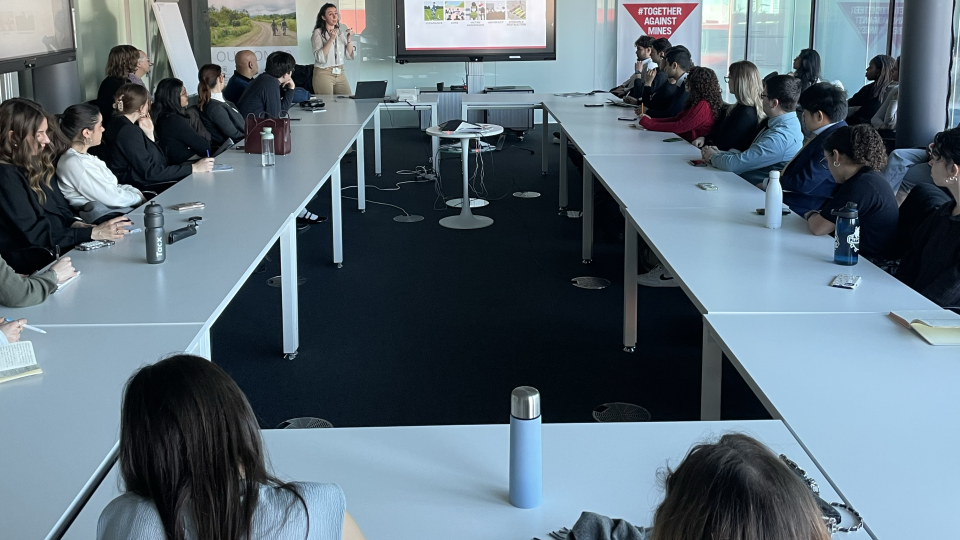
Personal and Professional Growth
For many of us, this was more than a study visit—it was a turning point. Whether learning from Veronika Wodsak at the International Labour Organization or quietly reflecting in the halls of Geneva’s historic institutions, the experience helped transform abstract policy debates into something personal and meaningful.
Some of us left with a clearer sense of our future in international organisations. Others used the trip as a moment to think more deeply about how to bring global knowledge home. The common threads? A focus on adaptability, the need to bridge global–local divides, and the importance of asking better questions.
Beyond the formal sessions, the trip fostered deep peer-to-peer learning. Informal discussions, debates, and shared reflections allowed us to see innovation and governance through new lenses. We arrived as classmates—but left as a more connected, curious, and motivated community.
We are grateful to WIPO, WTO, the Permanent Mission of India to the UN, UNCTAD, and everyone who made this visit possible. Geneva offered us not only insight, but inspiration—and a renewed sense of purpose.
Last but not least, many thanks to the UN Student Association Maastricht and DEMOS for organising this memorable trip!
